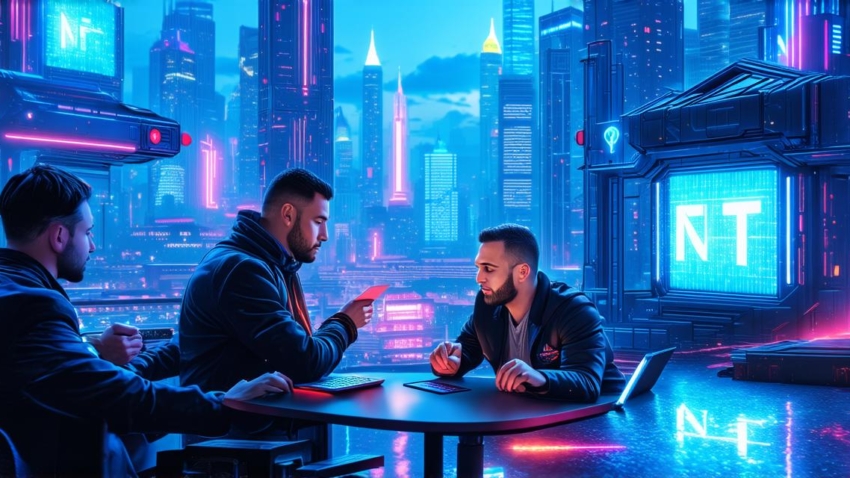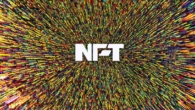
Is there a future for NFTs
In recent years, non-fungible tokens (NFTs) have emerged as a revolutionary digital asset class.
These unique and valuable digital assets are based on blockchain technology, which ensures their authenticity, rarity, and immutability. NFTs have already found success in various industries such as art, music, gaming, and sports. However, there is still much debate about the future of NFTs and whether they will continue to thrive in the long run.
Current State of NFTs
NFTs were first introduced in 2017 with the launch of Ethereum-based tokens. Since then, the market has grown exponentially, with billions of dollars worth of NFTs sold in just a few months.
In 2021, the total value of NFTs reached an all-time high of $2.5 billion. The most expensive NFT ever sold was also in 2021 when a piece of digital art called “Beeple” sold for $69 million.
The success of NFTs can be attributed to several factors, including the growing popularity of blockchain technology and the increasing interest in unique and valuable digital assets. NFTs are also highly customizable, allowing creators to set their own rules and monetization strategies. This has attracted artists, musicians, gamers, and other professionals who want more control over their digital creations and the revenue they generate.
Potential Use Cases for NFTs
NFTs have the potential to disrupt various industries, including art, music, gaming, sports, and real estate. Here are some examples of how NFTs could be used in these industries:
- Art: NFTs can provide artists with a new revenue stream by allowing them to sell their digital creations directly to collectors. NFTs also allow artists to track ownership and ownership history, which can help prevent counterfeiting and ensure the authenticity of their work.
- Music: NFTs can revolutionize the music industry by enabling artists to sell exclusive access to their music, concerts, or merchandise. This can create a new revenue stream for artists and fans alike. NFTs can also be used to tokenize collectibles such as vinyl records or concert tickets.
- Gaming: NFTs can be used in video games to represent in-game items, characters, or even entire game worlds. This can create a new economy within the game, allowing players to buy, sell, and trade these digital assets. NFTs can also be used to create unique gaming experiences that cannot be replicated anywhere else.
- Sports: NFTs can be used in sports to represent exclusive merchandise, collectibles, or even tickets to events. This can create a new revenue stream for teams, players, and event organizers. NFTs can also be used to create unique experiences such as virtual meet-and-greets with celebrities or athletes.
- Real Estate: NFTs can be used in real estate to represent fractional ownership of properties or even entire buildings. This can create a new market for real estate investors and provide liquidity for property owners. NFTs can also be used to tokenize rare or unique properties, such as vacation homes or luxury yachts.

Factors Determining the Success of NFTs
While NFTs have already found success in various industries, there are several factors that will determine their long-term success. Here are some key factors to consider:
- Adoption: The adoption rate of NFTs will play a crucial role in determining their success. As more people and businesses adopt NFTs, the market will continue to grow, creating new opportunities for creators and investors alike.
- Regulation: Regulatory bodies will need to develop clear guidelines and regulations around NFTs to ensure their security, transparency, and fairness. This will help build trust in the market and attract more users and investors.
- Infrastructure: The infrastructure supporting NFTs, including blockchain networks and wallets, will need to continue improving to support the growing demand for these assets. This will require significant investments in technology and infrastructure development.
- Use Cases: The development of new and innovative use cases for NFTs will be crucial in driving their long-term success. As more industries adopt NFTs, the market will continue to expand, creating new opportunities for creators and investors alike.
Summary
In conclusion, while there is still much debate about the future of NFTs, it is clear that they have already found success in various industries and have the potential to disrupt many more. The key factors determining their long-term success include adoption, regulation, infrastructure, and use cases. As these factors continue to evolve, NFTs will likely play an increasingly important role in the digital asset class and contribute to significant economic growth and innovation.
FAQs
Here are some frequently asked questions about NFTs:
- What are non-fungible tokens (NFTs)? NFTs are unique digital assets based on blockchain technology that ensure their authenticity, rarity, and immutability.
- How have NFTs found success in various industries? NFTs have found success in various industries such as art, music, gaming, sports, and real estate by providing artists with a new revenue stream, allowing them to sell their digital creations directly to collectors, and creating a new economy within the game.
- What are some potential use cases for NFTs? Some potential use cases for NFTs include art, music, gaming, sports, and real estate. In art, NFTs can provide artists with a new revenue stream by allowing them to sell their digital creations directly to collectors. In music, NFTs can revolutionize the music industry by enabling artists to sell exclusive access to their music, concerts, or merchandise.
- What factors will determine the long-term success of NFTs? The adoption rate of NFTs, regulatory guidelines and regulations, infrastructure development, and the development of new use cases will determine the long-term success of NFTs.
- What is the current state of the NFT market? In 2021, the total value of NFTs reached an all-time high of $2.5 billion, with billions of dollars worth of NFTs sold in just a few months.







